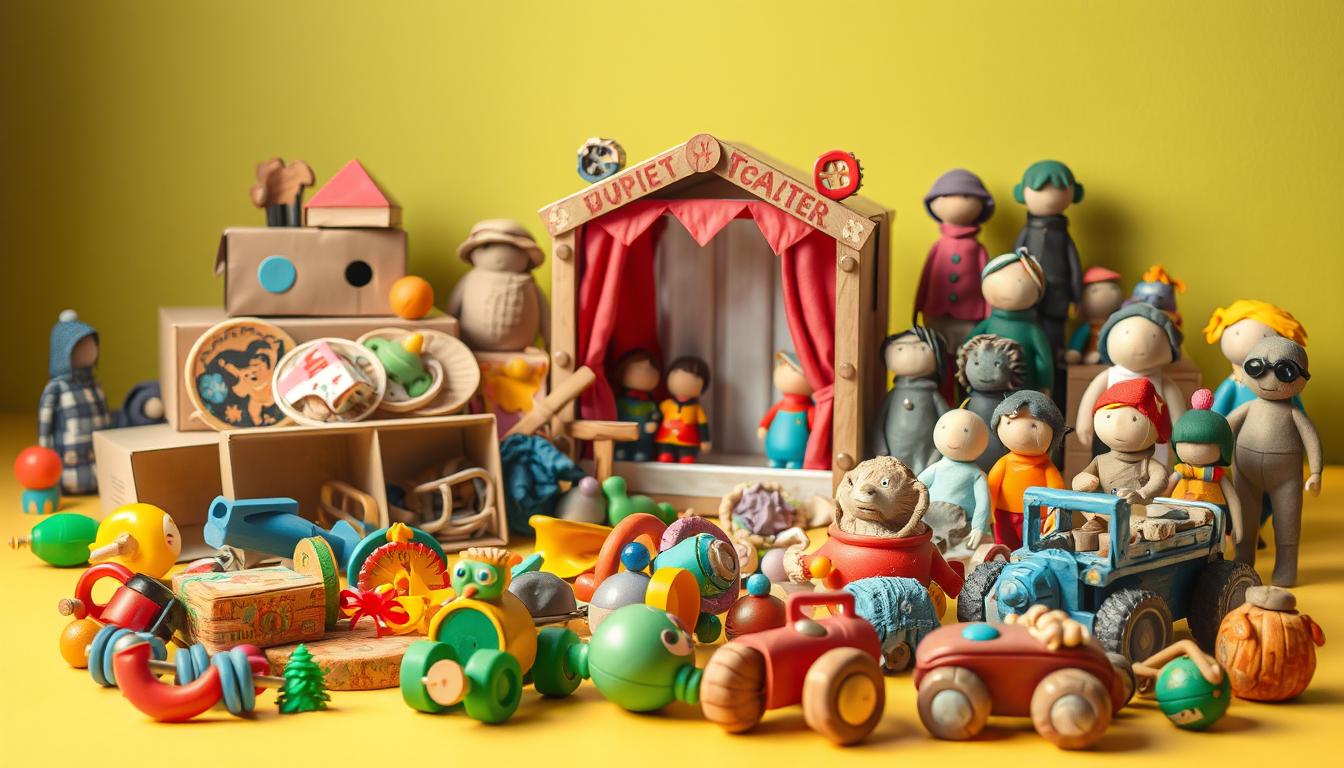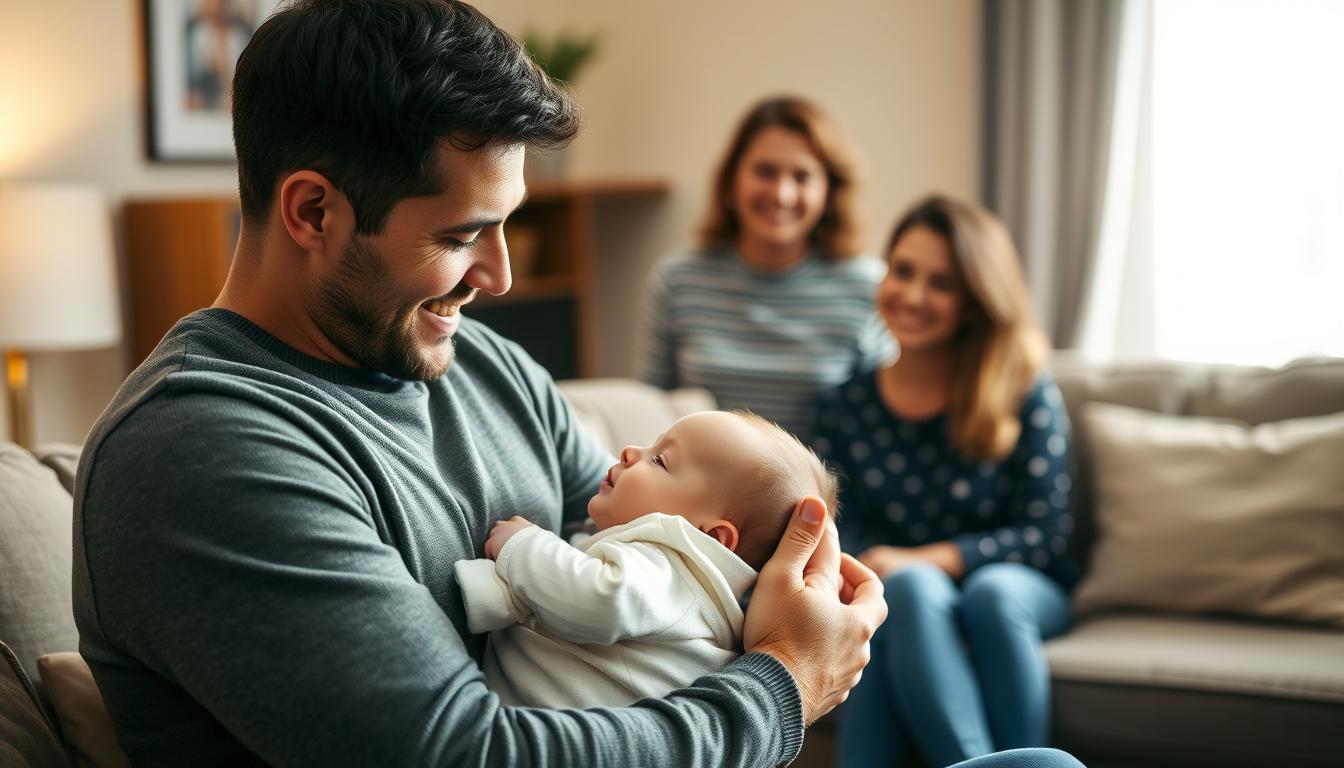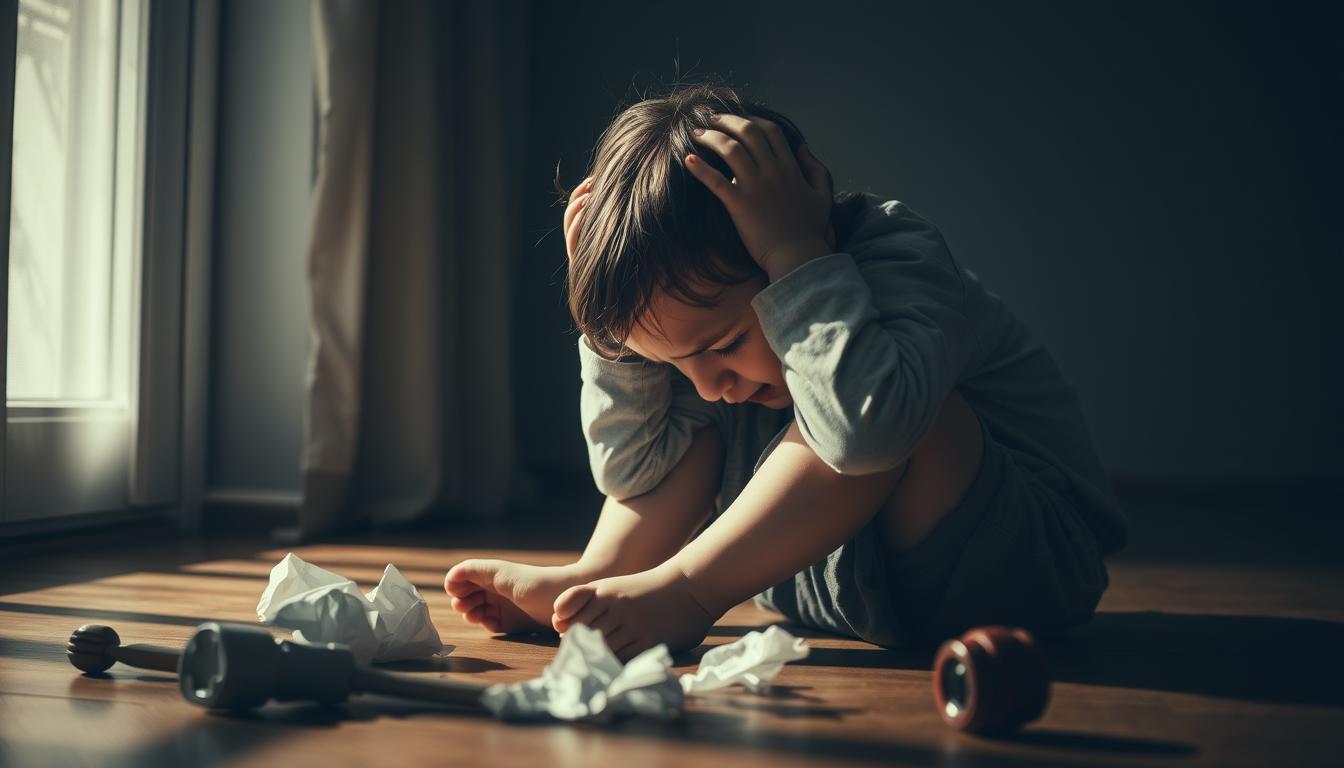Anxiety in Kids: How to Help Your Little One Feel Safe and Happy Again

Anxiety in kids is common in the U.S. It affects their mental health and happiness. As a parent or caregiver, knowing how to spot anxiety in kids is key. You can help them feel better by understanding the signs and using good coping strategies.
Spotting anxiety in kids can be hard, but it’s very important. Anxiety shows up in many ways. Knowing the signs helps you support your child’s mental health.
By making your home a safe space and teaching your child how to cope, you can help them deal with anxiety. This guide will cover how to spot anxiety in kids and help them. We’ll also share tips for bettering their mental health.
Key Takeaways
- Anxiety in children is a common issue that affects their mental health and well-being
- Recognizing anxiety in children is critical for providing the right support
- Learning to spot anxiety in children and help them cope is key for their mental health
- Creating a supportive home environment helps kids manage anxiety
- Teaching kids good coping strategies boosts their mental health
- Understanding anxiety in children is the first step to helping them overcome it
Understanding Anxiety in Kids: What Parents Need to Know
Many children deal with anxiety. It’s key for parents to know the signs and how to help. Spotting anxiety signs like too much fear or worry is the first step.
Learning how to manage anxiety is helpful. Knowing about different anxieties helps parents support their kids. Common anxieties include fear of being apart, fear of social situations, and worry about everyday things.
It’s important to know the difference between normal worry and an anxiety disorder. Normal worry is okay, but an anxiety disorder is too much fear that stops daily life. Knowing this helps parents support their kids better.
- Separation anxiety: excessive fear of being separated from parents or caregivers
- Social anxiety: fear of social situations or interactions with peers
- Generalized anxiety: excessive worry about everyday things, such as school or friendships
By knowing the signs and types of anxiety, parents can help. With the right support, kids can learn to handle their anxiety and find healthy ways to cope.
How to Recognize Anxiety in Kids and Help Them Cope
It’s hard for parents to spot anxiety in kids. But knowing the signs is key to helping them. Look for changes in how they act, like avoiding things or feeling sad. Also, watch for physical signs like headaches or feeling sick to their stomach.
Emotional signs, like being really upset or moody, are important too. By noticing these, parents can start teaching kids how to deal with anxiety.
Helping anxious kids is very important. Start by making a safe place where they can talk about their feelings. Listen well and make sure they know you get it. This helps them feel better and learn to handle anxiety.
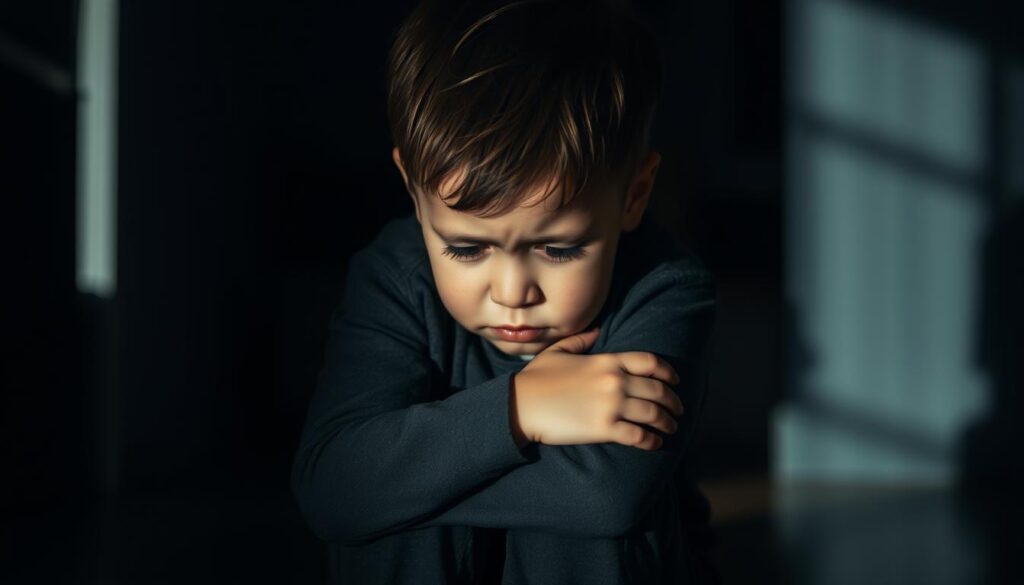
Good ways for kids to cope include deep breathing and talking nicely to themselves. Also, doing fun things like drawing or playing with friends helps. By supporting them and teaching them about anxiety, parents help kids feel better and grow strong.
Creating a Supportive Environment at Home
Helping kids overcome anxiety starts at home. Building trust and talking openly makes them feel safe. This helps lower their anxiety.
Having set routines helps kids feel secure and in charge. This can make their anxiety go down. It’s also key to trust and talk openly, so they share their feelings without fear.
- Encouraging open communication and active listening
- Establishing consistent routines and schedules
- Providing a safe and comfortable physical environment
- Modeling healthy coping mechanisms and stress management techniques
Parents can make a big difference by creating a supportive home. They can build trust, set routines, and make a safe space. This helps kids learn to handle anxiety better.
Effective Coping Strategies for Anxious Children
As a parent, it’s key to teach your child how to handle anxiety. You can use deep breathing, positive words, and moving around. These tips can help your child deal with anxiety and feel less stressed.
A good guide for parents should have many ways to help kids with anxiety. Some good ways include:
- Talking openly about feelings and thoughts
- Learning to relax with deep breathing and muscle exercises
- Doing sports or dancing to lower stress
- Showing them how to talk positively and solve problems
Teaching your child these strategies can help them manage anxiety. Be patient and supportive. Help them find what works best for them. With the right tips and support, your child can beat anxiety and be happy.
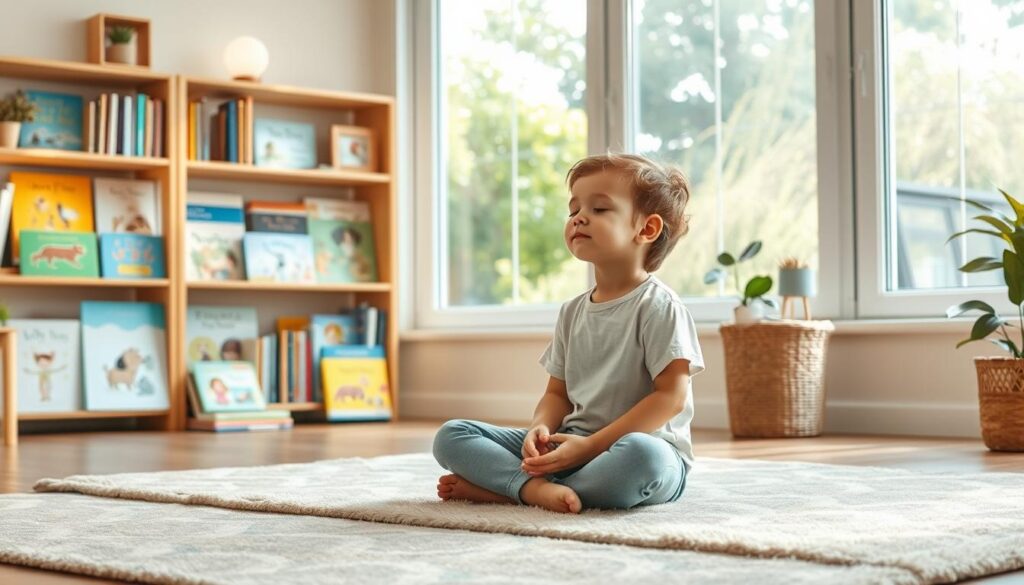
When and How to Seek Professional Help
Getting help for a child with anxiety is very important. It’s key to know when they need extra help and where to find it. Parents are a big help, but sometimes, a professional is needed for the best results.
Many mental health experts can help kids with anxiety. This includes therapists and counselors. They teach kids how to handle their anxiety and feel better. Treatment can be therapy or medicine, and a professional will help choose the best one for your child.
Collaborating with Mental Health Professionals
- Therapists and counselors can provide individualized therapy sessions
- Psychiatrists can prescribe medication to help manage anxiety symptoms
- Psychologists can provide assessments and recommendations for treatment
When looking for help, working with your child’s school is also important. This means talking to teachers and counselors to make a plan for your child. By getting professional help and working with the school, your child can beat anxiety and reach their goals.
Conclusion: Empowering Your Child’s Journey to Emotional Well-being
Helping kids beat anxiety needs a big plan. It includes knowing about anxiety in kids, spotting it, and making a safe home. Teaching kids how to handle tough feelings and getting help when needed is key.
By using the advice in this parent’s guide to child anxiety, parents can help their kids. They can learn to deal with hard times and do well.
Every kid is different. What helps one might not help another. But, being kind, patient, and understanding can help a lot. With the right help, your child can grow strong and feel better.
FAQ
What are the common types of anxiety in kids?
How can I tell if my child’s worry is normal or an anxiety disorder?
How can anxiety impact a child’s development?
What are some signs that my child may be experiencing anxiety?
How can I help my child cope with anxiety?
When should I seek professional help for my child’s anxiety?
RELATED POSTS
View all
